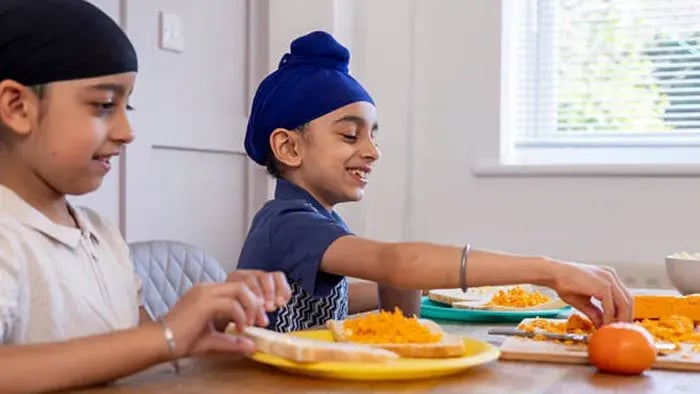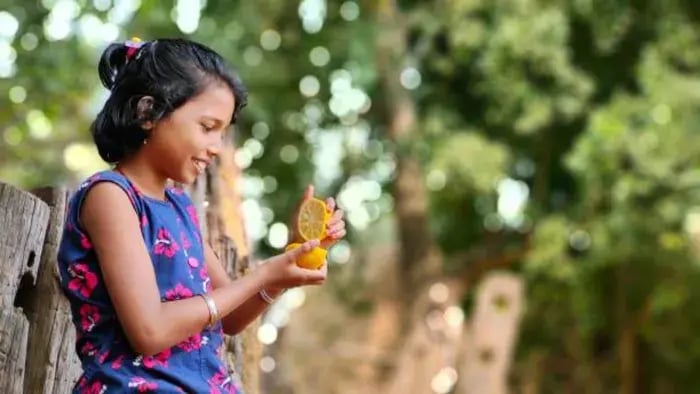- Amla (Indian Gooseberry)
- Guava
- Coriander Leaves
- Capsicum (Bell Peppers)
- Cabbage
- Lemon
- Drumstick (Moringa Pods)
Introduction
Vitamin C is always talked about during cold and flu season, but its role goes beyond just fighting a sniffle. It helps in collagen production, strengthens the body’s ability to absorb iron, helps in faster wound healing, and is essential for healthy gums, skin and immunity. For kids and adults alike, getting enough vitamin C is not optional; it's essential.

What makes this vitamin even more interesting is how easily available it is in Indian food. From everyday veggies like capsicum and cabbage to seasonal fruits like amla, guava and oranges, vitamin C-rich options are already a part of many Indian meals; you just need to know how to make the most of them. And since it's water soluble and not stored in the body, getting a daily dose through fresh food is more important than ever.
Powerful & Natural: 7 Indian Foods Packed with Vitamin C

Vitamin C is one of those nutrients you hear about a lot, and for good reason. It helps your body build immunity, speeds up wound healing, improves iron absorption, and even supports healthy skin. But instead of reaching for supplements, your kitchen may already hold what your family needs. Indian diets naturally include a range of fresh, seasonal, and local foods rich in Vitamin C, if you know where to look.
Let’s explore seven Indian ingredients that are not only loaded with Vitamin C but also blend beautifully into daily meals.
Amla (Indian Gooseberry)
According to a study published in Antioxidants (Basel). 2022, amla is one of the richest natural sources of Vitamin C; just one small fruit can provide more than the daily requirement for both kids and adults. It plays a key role in supporting digestion, enhancing iron absorption, improving skin tone, and strengthening the immune system. Amla can be added to your diet in multiple ways: as murabba, dried candy, fresh juice, or chutney. Even adding grated amla to parathas or curd can make a simple meal more nutritious.
Guava
As per a study published in Foods. 2021, guavas are an affordable and highly effective way to meet your daily Vitamin C needs. One medium-sized guava provides more than double the recommended intake of Vitamin C. The fruit is also rich in fibre and low in calories, making it ideal for both immunity and digestion. Slice it fresh with a pinch of salt and chilli powder for an after-school snack, blend into a smoothie, or mix into a fruit chaat for variety.
Coriander Leaves
Often used as a garnish, coriander leaves quietly boost your Vitamin C intake with every handful. Study published in, J Med Food. 2014, shows that it is rich in antioxidants, they help with detoxification and support skin and bone health too. A fresh green chutney made with coriander, mint, and lemon is an easy and tasty way to get a daily dose. You can also blend it into the dough for parathas or use it to enhance rice dishes.
Capsicum (Bell Peppers)
Research conducted by, PLoS One. 2016, suggests that bell peppers, especially the red and yellow varieties, are surprisingly rich in Vitamin C, more than even oranges in some cases. Their sweet taste and vibrant color make them an easy addition to your child’s plate. Add finely chopped capsicum to poha, noodles, or pasta, or grill slices as a healthy side. The vitamin content is highest when they’re eaten raw or lightly cooked.
Cabbage
According to a study published in, Molecules. 2020, cabbage offers a decent amount of Vitamin C along with fibre, making it a valuable addition to any meal. Lightly cooked cabbage helps retain more of the vitamin while still being gentle on the stomach. Add it to stir-fries, roll it into parathas, or shred it raw into salads with lemon juice for a simple immunity boost.
Lemon
A few drops of lemon juice can go a long way in boosting your Vitamin C intake. Study published in Foods. 2020, shows that it enhances iron absorption, supports healthy skin, and adds brightness to meals. Squeeze it over dals, salads, khichdi, or fruit bowls. A warm glass of lemon water with honey is a simple and soothing way to start or end your day.
Drumstick (Moringa Pods)
As per a study published in Antioxidants (Basel). 2022, drumsticks are commonly used in South Indian cooking, and they’re packed with Vitamin C, iron, and antioxidants. They support bone health, improve digestion, and help fight infections. The pods are best enjoyed in sambar or soups, while moringa leaves can be added to parathas, dals, or made into a simple stir-fry.
Conclusion

Adding more Vitamin C to your daily meals doesn’t have to feel like a task. These Indian staples are already part of your kitchen; it's just about using them more mindfully. A bit of chutney, a seasonal fruit, or some lemon over your food can do more than just add flavor. It’s one small step toward building stronger immunity, sharper minds, and healthier routines for your family.
Her love for storytelling began with reading her grandfather’s speeches, where Tarishi saw the power of words in creating lasting memories. Combining her passions for food and writing, she has turned her life into a fulfilling path of sharing stories that celebrate flavours and how food brings communities together.
The views expressed are that of the expert alone.
The information provided in this content is for informational purposes only and should not be considered a substitute for professional medical advice, diagnosis, or treatment. Always seek the advice of your physician or another qualified healthcare provider before making any significant changes to your diet, exercise, or medication routines.
References
https://pmc.ncbi.nlm.nih.gov/articles/PMC8869219/
https://pmc.ncbi.nlm.nih.gov/articles/PMC7230787/
https://pmc.ncbi.nlm.nih.gov/articles/PMC7464038/
https://pmc.ncbi.nlm.nih.gov/articles/PMC4988645/
https://pmc.ncbi.nlm.nih.gov/articles/PMC4152784/
















